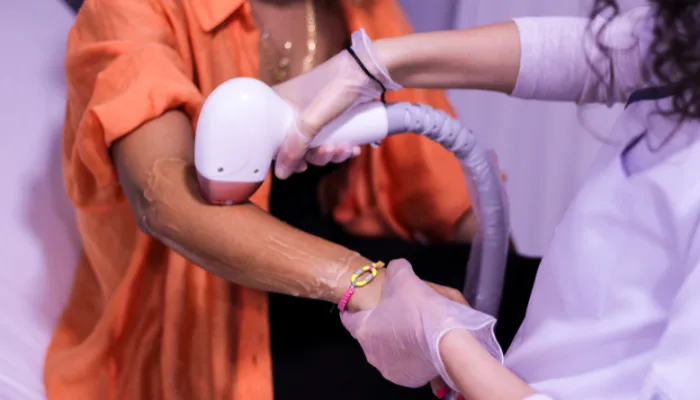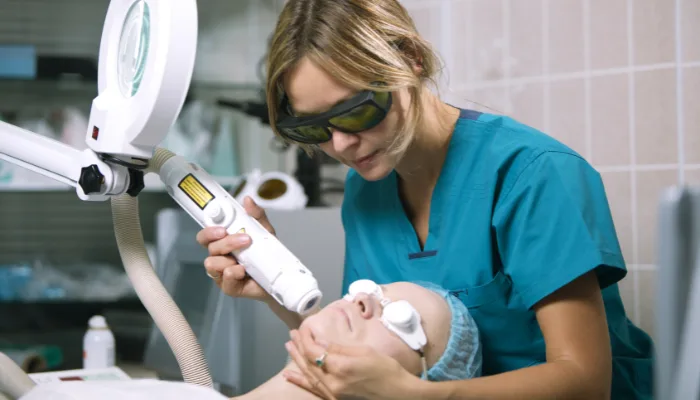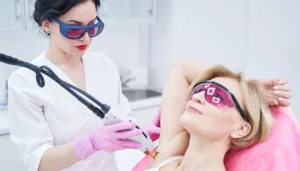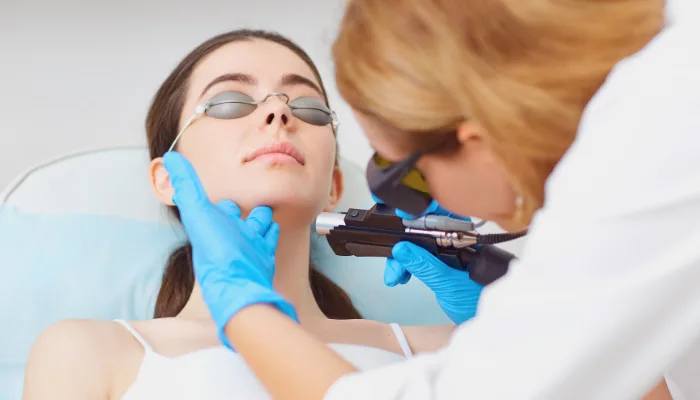
In recent years, there has been a noticeable surge in the popularity of laser courses for doctors. As the medical field evolves, so do the techniques and technologies used in patient care.
Laser treatments have become a staple in aesthetic medicine, leading many healthcare professionals to seek specialised training. This article explores why these courses are in such high demand and how they can benefit practitioners and their patients alike.
Key Takeaways
- Laser courses for doctors enhance patient care by providing advanced treatment options.
- Staying competitive in the aesthetic medicine field is crucial, and laser training offers that edge.
- The demand for laser treatments is skyrocketing, making specialised training a smart investment.
- Enrolling in laser courses can lead to increased earnings and client satisfaction.
- Choosing the right laser course can expand your service offerings and career opportunities.
Understanding The Importance Of Laser Courses For Doctors
Laser courses for doctors are becoming increasingly important, and it’s not hard to see why. The world of aesthetic medicine is rapidly evolving, and lasers are at the forefront of many new treatments. For doctors, keeping up with these advancements is key to providing the best possible care and staying competitive.
Enhancing Patient Care
Laser courses equip doctors with the knowledge and skills to use laser technology safely and effectively. This translates directly into better patient outcomes.
Doctors can offer a wider range of treatments, tailored to individual needs, with reduced risk of complications. It’s about providing the best, most up-to-date care possible.
Staying Competitive in Aesthetic Medicine
The aesthetic medicine market is booming, and patients are increasingly seeking out non-invasive treatments. Doctors who offer laser treatments have a significant advantage. Laser courses allow you to expand your service offerings and attract a larger patient base.
It’s a way to future-proof your practise and stay ahead of the curve.
Meeting Regulatory Requirements
In many regions, there are strict regulations surrounding the use of medical lasers. Laser courses ensure that doctors are compliant with these regulations, protecting both themselves and their patients. It’s about operating within the law and maintaining the highest standards of professional conduct.
Laser treatments are complex procedures that utilise high-energy light sources to achieve results. Each client’s skin, health, and individual needs vary, requiring a tailored approach to maximise benefits and minimise risks. This is where qualified and experienced clinicians make a world of difference.
The Growing Demand For Laser Treatments
Laser treatments are proper popular, and it’s not just a fad. More and more people are seeking them out, and doctors are cottoning on, hence the need for laser courses.
Let’s have a look at why this is happening.
Popularity Among Patients
Patients are driving this whole thing. They’re after treatments that work, and they want them now. Laser treatments often fit the bill. They’re seen as effective, relatively quick, and less scary than going under the knife.
Plus, word spreads fast. Someone gets great results with laser hair removal, and suddenly everyone wants it. Social media definitely plays a part, with influencers showing off their smooth skin and wrinkle-free faces.
Diverse Applications in Medicine
Lasers are being used for all sorts of medical things these days. Think dermatology, ophthalmology, even pain management. From zapping away skin blemishes to helping with chronic pain, the applications are pretty broad.
This means more doctors from different fields are wanting to get trained up in laser tech.
Non-Invasive Alternatives to Surgery
People are often keen to avoid surgery if they can. It’s understandable, right? Lasers often provide a way to get similar results without the risks and long recovery times of traditional surgery.
For example, laser skin resurfacing can reduce wrinkles without a full-on facelift. This appeal of non-invasive options is a big factor in the growing demand for laser treatments.
Laser treatments are becoming a go-to option for many patients. They offer a balance of effectiveness, convenience, and reduced risk compared to more invasive procedures. This shift in patient preference is a key driver behind the increasing demand for laser training among doctors.
Benefits Of Enrolling In Laser Courses
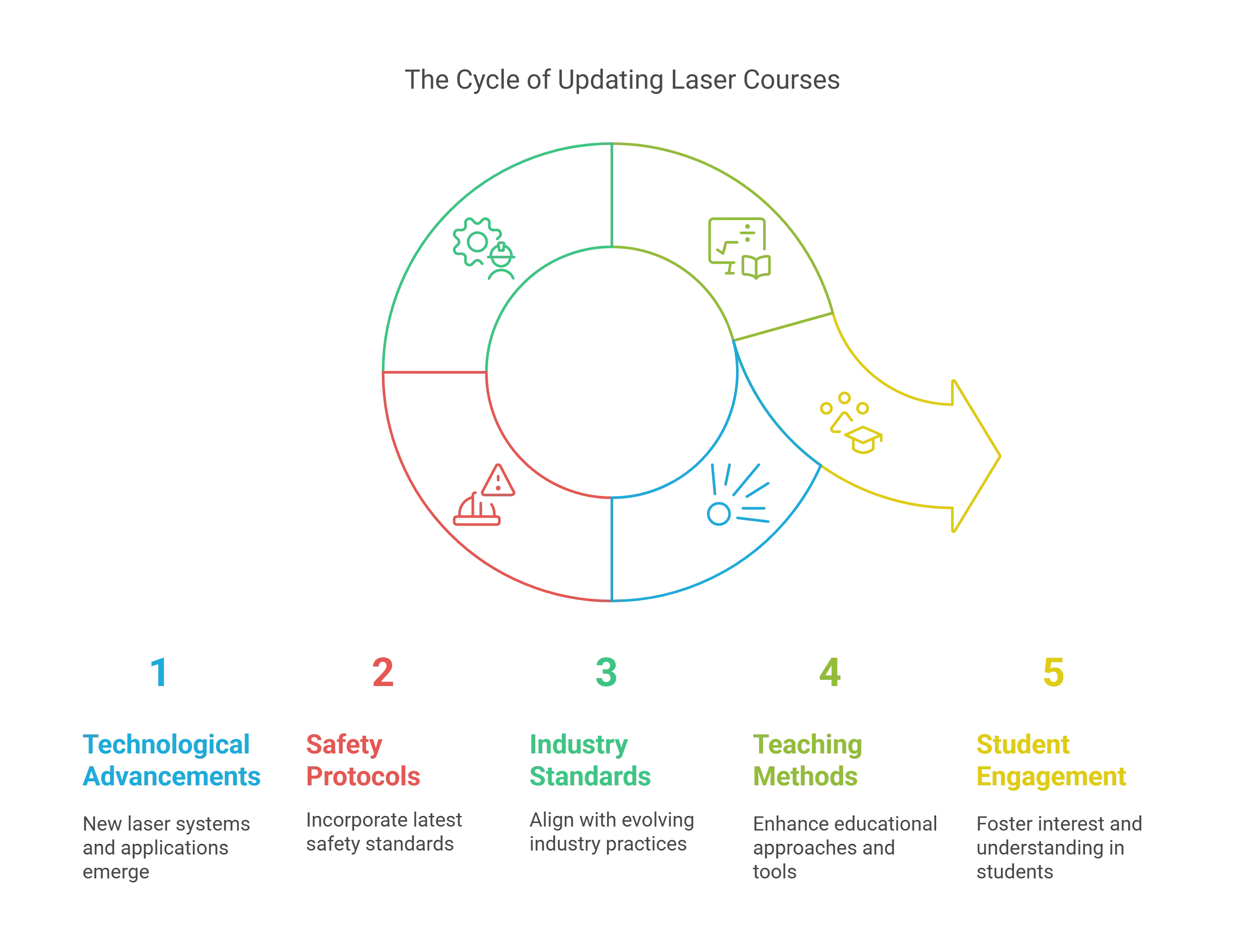
Laser courses also open doors to a whole load of opportunities. Let’s have a look at some of the perks.
Increased Earning Potential
Let’s be honest, money talks. Laser treatments are high-value services, and being qualified to offer them means you can charge more. Think about it: clients are willing to pay for effective solutions, and laser technology delivers.
It’s simple supply and demand, really. The more skills you have, the more you can earn.
Expanded Service Offerings
Variety is the spice of life, right? Well, it’s also good for business. By adding laser treatments to your list, you can attract a wider range of clients.
Here’s a quick example:
- Laser Hair Removal
- Tattoo Removal
- Skin Rejuvenation
- Acne Treatment
More services mean more reasons for clients to choose you over the competition. Plus, it keeps things interesting for you too!
Improved Client Satisfaction
Happy clients are the best advertisement you can get. When you’re properly trained in laser treatments, you can deliver better results, safely and effectively. This leads to happier clients, who are more likely to come back and recommend you to their friends. It’s a win-win situation.
Investing in laser training isn’t just about you; it’s about providing the best possible care for your clients. When they see the results they want, they’ll trust you, and that trust is priceless.
Types Of Laser Courses Available
Laser Hair Removal Training
Laser hair removal is probably the most well-known application of laser tech in aesthetics, so it makes sense that laser hair removal training courses are super popular. These courses will teach you the ins and outs of different laser types, how to assess skin and hair types, and, most importantly, how to safely and effectively remove unwanted hair.
You’ll learn about:
- Laser physics specific to hair removal.
- Client consultation and assessment.
- Practical, hands-on training with various laser devices.
Tattoo Removal Courses
Tattoo removal is another big one. These courses focus on the techniques and safety protocols for using lasers to break down tattoo ink. It’s not just pointing a laser and hoping for the best; there’s a lot of science involved!
You’ll cover:
- Understanding different tattoo inks and their response to laser treatment.
- Pain management techniques for client comfort.
- Post-treatment care and potential complications.
Skin Resurfacing Programmes
Skin resurfacing is where lasers are used to treat things like wrinkles, scars, and pigmentation issues. These programmes are usually more advanced and require a solid understanding of skin anatomy and laser physics.
Expect to learn about:
- Different skin resurfacing techniques (ablative vs. non-ablative).
- Managing patient expectations and realistic outcomes.
- Dealing with potential side effects and complications.
Choosing the right course really depends on what you want to achieve. If you’re just starting out, a basic laser hair removal course might be a good shout. If you’re already experienced and want to expand your skills, then a skin resurfacing programme could be the way to go.
Choosing The Right Laser Course
With so many options out there, how do you pick the right one? It can feel a bit overwhelming, but don’t worry, I’m here to help you break it down.
It’s all about finding a course that fits your current skills, your career goals, and, of course, your interests. Let’s get started.
Assessing Your Current Skills
First things first, be honest with yourself about where you’re at. Are you a complete beginner, or do you already have some experience in the beauty or medical field? If you’re new to all this, starting with a basic aesthetic practice course or a beginner’s tattoo removal course is a smart move. If you’ve already got a background in aesthetics, you might be ready for something more advanced.
Think of it like building a house – you need a solid foundation before you can start adding fancy features.
Researching Accredited Institutions
This is a big one. You want to make sure the course you choose is accredited by a recognised body. Why? Because accreditation means the training meets certain industry standards.
It shows that the course is legit and that you’ll get the skills and knowledge you need to actually do the job properly. Plus, some employers will only hire people who’ve graduated from accredited courses.
Understanding Course Content
Okay, so you’ve found a few accredited courses that look promising. Now it’s time to dig into the details.
- What exactly will you be learning?
- Does the course cover the specific laser treatments you’re interested in?
- Will you get hands-on practise?
A good laser course should cover both the theory and the practical side of things. You want to come away feeling confident that you can safely and effectively perform laser treatments on real clients.
It’s also worth checking if the course includes training on different skin types and conditions. Not all skin is created equal, and you need to know how to adjust your treatments accordingly. Look for courses that offer a well-rounded education, and you’ll be well on your way to a successful career in laser aesthetics.
Career Opportunities After Laser Training
What’s next? Well, the good news is that a whole range of exciting career paths are now open to you. The demand for skilled laser technicians is growing, so let’s explore some of the possibilities.
Diverse Work Environments
One of the best things about laser training is the flexibility it gives you in terms of where you can work. You’re not limited to one type of setting. You could find yourself in a high-end medi-spa, a private dermatology clinic, or even a cosmetic surgery practise.
Each environment offers a different vibe and client base, so you can choose what suits you best.
Specialisation Options
Laser technology is used for loads of different treatments, and you can choose to specialise in a particular area that interests you. Fancy becoming an expert in laser hair removal? Or maybe you’re more drawn to skin rejuvenation or tattoo removal?
Specialising allows you to really hone your skills and become known as a go-to person in that field. Plus, it can often lead to higher earning potential.
Long-Term Career Stability
The aesthetics industry is booming, and laser treatments are becoming increasingly popular. This means that qualified laser technicians are in high demand, and that demand is only set to grow. By investing in laser training, you’re not just learning a new skill – you’re setting yourself up for a stable and rewarding career in the long run.
Here are some reasons why a career involving lasers is a good bet:
- The technology is always improving, so there’s always something new to learn.
- People will always want to look and feel their best, so the demand for aesthetic treatments isn’t going away.
- You can build a loyal client base who trust your skills and expertise.
The Future Of Laser Treatments In Medicine
Technological Advancements
We’re seeing more precise lasers, and they’re becoming more versatile. Think faster treatment times and less discomfort for patients. Miniaturisation is also a big thing – smaller, more portable devices mean treatments can be done in more places, not just big clinics. It’s pretty cool, actually.
Emerging Treatment Techniques
It’s not just hair removal and skin resurfacing anymore. Lasers are being used in some really interesting new ways.
For example:
- Targeted drug delivery – using lasers to activate medication right where it’s needed.
- Photobiomodulation – using low-level lasers to stimulate healing and reduce inflammation.
- Diagnostics – lasers are helping with early detection of diseases.
The possibilities seem endless, and it’s exciting to think about what else lasers will be able to do in the future. It’s a field where continuous learning is key.
Patient Expectations and Trends
Patients want treatments that are quick, effective, and have minimal downtime. They’re also more informed than ever before, thanks to the internet. This means doctors need to be able to offer the latest and greatest laser treatments, and also be able to explain the science behind them.
Keeping up with these expectations is a must for any successful practise.
Conclusion
Ensure your success is built on the right foundation. With the growing demand for advanced aesthetic solutions, laser treatments have become a key offering in modern medical practices. However, as this field expands, the importance of receiving accredited training cannot be overstated. Enrolling in an accredited laser course ensures that doctors gain not only hands-on expertise but also recognized credentials that inspire trust and credibility among clients.
This type of structured, reputable education equips practitioners with the latest techniques, safety protocols, and compliance standards — essential for delivering high-quality, results-driven care. As the aesthetic industry continues to evolve, professionals who invest in certified training position themselves as leaders in their field.
Frequently Asked Questions
Why are laser courses important for doctors?
Laser courses help doctors learn how to use laser technology safely and effectively for treatments, improving patient care and outcomes.
What types of laser treatments can I learn about?
You can learn about various treatments like laser hair removal, tattoo removal, and skin resurfacing.
How can laser courses improve my career?
By completing laser courses, you can offer more services, attract more clients, and increase your earnings.
Are there different levels of laser courses?
Yes, there are beginner courses for those new to lasers and advanced courses for those with experience.
What should I look for in a laser training programme?
Make sure the programme is accredited, covers the topics you need, and is taught by experienced instructors.
What career opportunities are available after laser training?
You can work in various settings such as beauty clinics, medical spas, or even start your own practise.

